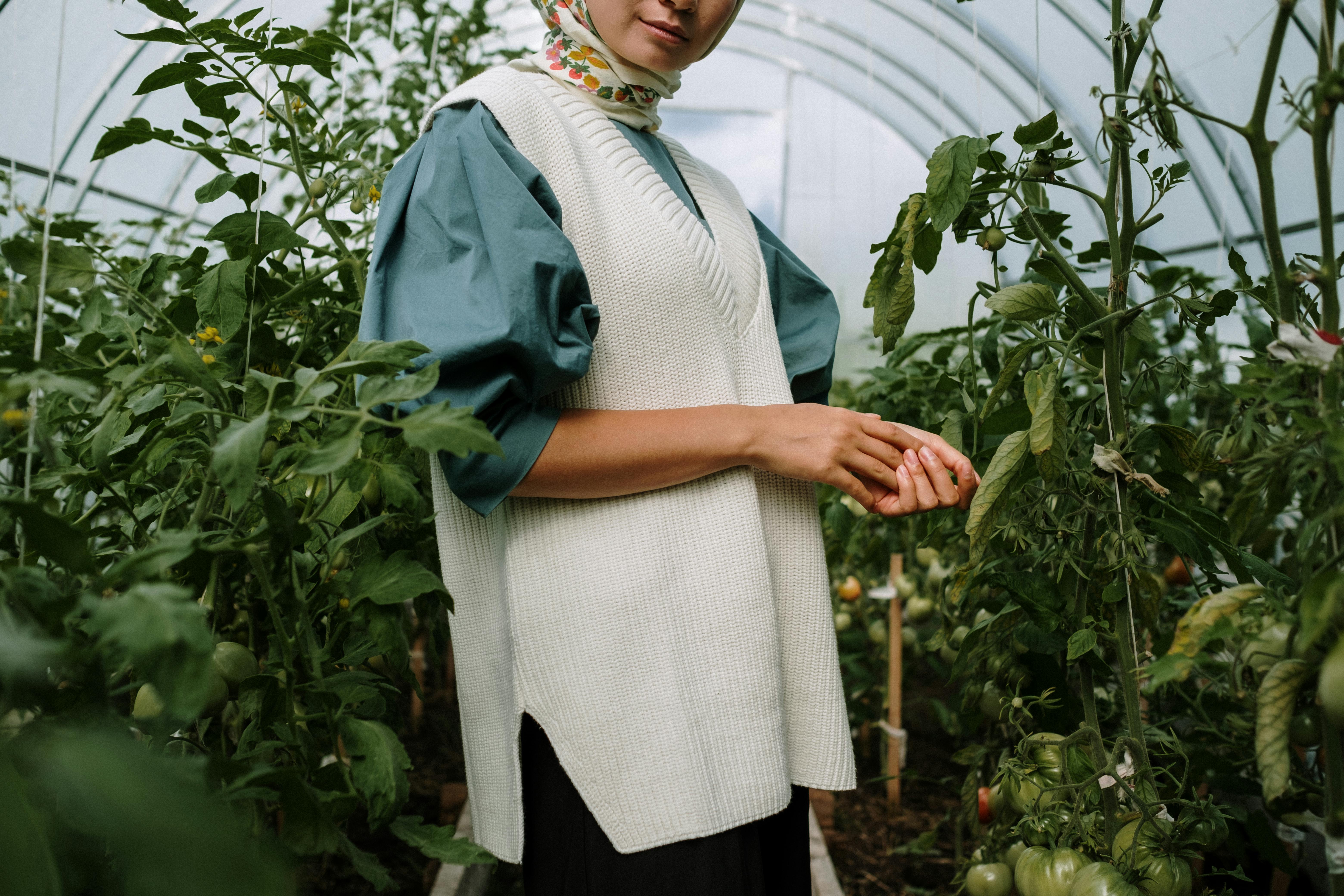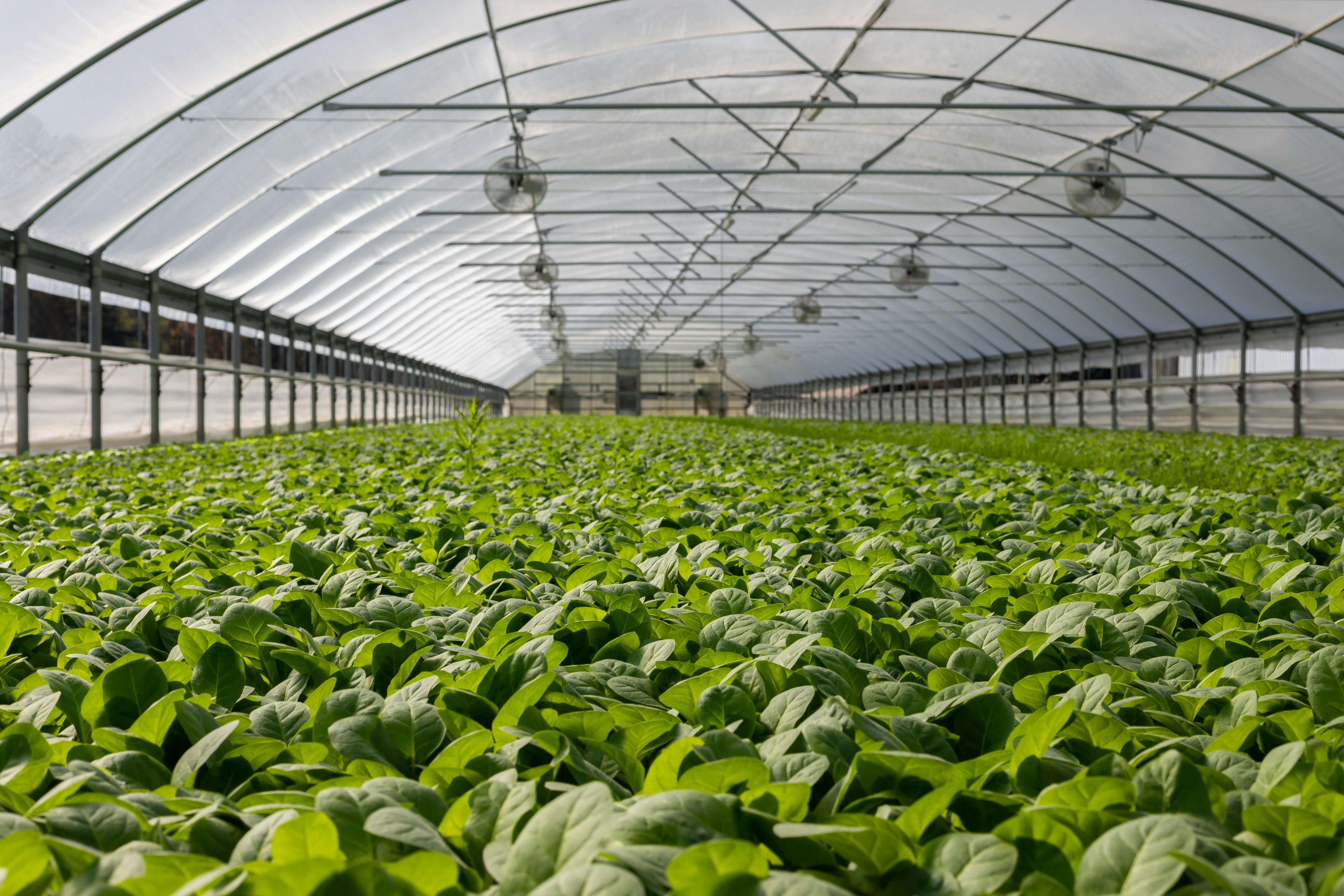Poor Soil Quality
One of the most common causes of poor vegetable plant growth is poor soil quality. Poor soil can be caused by a variety of factors, including insufficient nutrients, lack of organic matter, compaction, and pH imbalances. Poor soil can lead to stunted growth, weak and spindly plants, and reduced productivity. To ensure that your vegetable plants have the best chance of thriving, it’s important to test your soil regularly and make sure it’s adequately fertilized and balanced.
Inadequate Sunlight
Another common cause of poor vegetable plant growth is inadequate sunlight. Most vegetables need at least 6 hours of direct sunlight each day to thrive. If the plants are not receiving enough light, they may become leggy or show other signs of distress such as yellowing or wilting leaves. To ensure that your vegetables receive enough light, you should choose a sunny spot in your garden where the plants will get plenty of direct sunlight throughout the day.
Overwatering
Overwatering is another common cause of poor vegetable plant growth. Too much water can cause root rot, which can lead to nutrient deficiencies and stunted growth in the plants. When watering your vegetable garden, make sure to water only when necessary and avoid overwatering; this will help ensure that your vegetables are getting the right amount of moisture for optimal growth.
Pest Infestation
Pest infestations can also lead to poor vegetable plant growth. Insect pests such as aphids, caterpillars, mites, or beetles can feed on the leaves and stems of the plants, causing damage that can stunt their growth or even kill them if left unchecked. To prevent pest infestations from occurring in your garden, it’s important to monitor regularly for signs of pests and take action if any are found.
Disease
Lastly, diseases caused by fungi or bacteria can also result in poor vegetable plant growth. Common diseases include powdery mildew, downy mildew, blight, wilt disease, root rot disease and others. To prevent these diseases from damaging your crops it’s important to practice good sanitation techniques in the garden such as removing infected plants promptly and avoiding overcrowding with plants that are susceptible to disease.
Soil Conditions Affecting Poor Vegetable Plant Growth
Soil quality is an essential factor in vegetable plant growth. Poor soil conditions can cause stunted or unhealthy plants. Nutrient deficiencies, poor drainage, and weed infestation can all result in poor vegetable growth.
Nutrient deficiencies are one of the most common causes of poor plant growth. Plants require a variety of nutrients to grow, and if the soil lacks one or more of these nutrients, the plant will struggle to survive. Nitrogen, phosphorus, and potassium are essential for healthy plant growth, but other trace elements such as iron, sulfur, and zinc are also important for plant health.
Poor drainage can cause waterlogged soil and prevent oxygen from getting to the roots of the plants. When oxygen levels are low in the root zone, plants cannot absorb necessary nutrients from the soil and may suffer from nutrient deficiencies as a result. Additionally, waterlogged soil can lead to root rot which can further harm plants.
Weed infestation is another common problem that adversely affects vegetable growth. Weeds compete with vegetables for space, light, water, and nutrients. If left unchecked they can quickly overtake a garden bed or container leaving little room for vegetables to grow properly. Weed control measures such as regular hand weeding or using mulch can help reduce weed infestations in vegetable gardens.
By addressing these issues in a timely manner you can help ensure that your vegetable plants have access to all the resources they need for healthy growth. Soil testing is an important part of understanding your soil’s nutrient needs and should be done periodically to ensure that your garden has adequate nutrition for optimal growth.
Weather and Environmental Factors Affecting Poor Vegetable Plant Growth
Vegetable plants need the right balance of sunlight, water, and nutrients to grow and thrive. If any of these environmental factors are off balance, vegetable plants can suffer poor growth or even die. The most common causes for poor vegetable plant growth are inadequate watering, too much or too little sunlight, and nutrient deficiencies.
Inadequate watering is one of the most common causes of poor vegetable plant growth. Without enough water, vegetables plants can become dehydrated and their leaves will start to droop. It’s important to make sure that your vegetable garden stays well-watered throughout the growing season. If you have a soil that drains quickly or a windy climate, it’s important to water more frequently.
Too much or too little sunlight can also cause poor vegetable plant growth. Most vegetables need at least 6 hours of direct sunlight every day in order to grow properly. Too much direct sun can burn the leaves of the plant, while too little sun can cause the leaves to become weak and pale. It’s important to choose a site for your vegetable garden that has adequate light exposure throughout the day.
Finally, nutrient deficiencies are a common cause of poor vegetable plant growth. When soil lacks certain essential nutrients, such as nitrogen or phosphorus, it can be difficult for plants to absorb what they need from it in order to grow properly. To prevent this from happening, use a soil test kit to determine what nutrients your soil is lacking and then supplement with fertilizer or compost accordingly.

Diseases and Pests Causing Poor Vegetable Plant Growth
Vegetable plants are vulnerable to a range of diseases and pests, which can impact their growth and yield. Common diseases that can cause poor vegetable plant growth include fungal diseases, such as powdery mildew and downy mildew; bacterial diseases, such as bacterial wilt; and viral diseases, such as mosaic virus. All of these diseases may cause stunted growth, wilting, discolored foliage, or other symptoms.
Pests can also cause poor vegetable plant growth in the form of direct damage to the foliage or roots. Insects such as aphids, caterpillars, flea beetles, cutworms, and whiteflies feed on the foliage of vegetable plants and can stunt their growth. Nematodes are microscopic worms that live in the soil and feed on the roots of vegetable plants, causing them to become dry or stunted. In addition to direct feeding damage from pests, some pest species carry plant viruses that can further stunt vegetable plant growth.
In order to minimize the impact of diseases and pests on vegetable plant growth it is important to practice good cultural control methods such as crop rotation and proper irrigation. It is also important to identify pest or disease problems early so they can be treated promptly with appropriate chemical controls if necessary.
Improving Soil Quality for Healthy Vegetable Plant Growth
Soil is essential for healthy and productive vegetable plant growth. It provides physical stability, nutrients, and protection from disease and pests. Poor soil quality can lead to poor yields and a range of other issues that can affect crop production. To ensure that your vegetable plants are receiving the right nutrients, it is important to take steps to improve the soil’s quality.
One way to improve soil quality is through adding organic matter. Compost, manure, mulch, and other organic materials can help improve the structure of the soil by increasing its water-holding capacity and nutrient content. Adding organic matter also helps reduce soil compaction, which can impede plant growth.
In addition to adding organic matter, it is important to use fertilizers appropriately. Fertilizers provide essential nutrients for plants but they should be used in moderation as too much fertilizer can lead to nutrient runoff and contamination of nearby waterways. Applying the right amount of fertilizer at the right time will help ensure that your vegetable plants are receiving the nutrients they need without overloading the soil with chemicals.
Soil pH also plays an important role in vegetable plant growth. Most vegetables prefer a slightly acidic pH level (between 6.0-7.0) so it is important to check your soil’s pH level regularly and take steps to adjust it if necessary. Liming materials such as calcium carbonate or sulfur can be used to adjust pH levels up or down depending on what your plants need.
Finally, it is also important to keep weeds under control as they can compete with vegetables for water and nutrients. Regularly checking for weeds and taking steps to eliminate them will help ensure that your vegetable plants receive all of the resources they need for healthy growth.
By taking steps to improve soil quality such as adding organic matter, using fertilizers appropriately, adjusting pH levels when necessary, and controlling weeds you can ensure that your vegetable plants are receiving all of the resources they need for healthy growth and productive harvests!
Enhancing Water Availability for Healthy Vegetable Plant Growth
Water is essential for producing healthy, high-yielding vegetable crops. Without an adequate supply of water, plants will be unable to absorb nutrients, resulting in stunted growth and poor yields. In order to ensure that vegetable plants have access to enough water, farmers must carefully manage the water availability in their fields and gardens. This can be done by using a variety of techniques such as irrigation, mulching, and soil amendments.
Irrigation is the most common way to provide additional water to vegetable plants. There are several types of irrigation systems available, including sprinkler systems, drip irrigation systems, and subsurface irrigation systems. Each type has advantages and disadvantages that should be considered before selecting a system. Sprinkler systems can be used on large areas of land but require more maintenance than other types of irrigation systems. Drip irrigation systems are more efficient than sprinkler systems but require careful monitoring to ensure that each plant is receiving enough water. Subsurface irrigation systems are ideal for areas with limited access to surface water as they allow water to be delivered directly to the root zone of the plant without runoff or evaporation losses.
Mulching is another way to conserve soil moisture in vegetable fields and gardens. Mulch helps reduce evaporation losses from soil by providing a barrier between the soil surface and the atmosphere. Organic mulches such as straw or grass clippings also add organic matter back into the soil as they decompose over time. Inorganic mulches such as plastic sheeting can also be used but do not add any beneficial organic matter back into the soil.
Soil amendments can also be used to improve water availability for vegetable crops. Amendments such as gypsum or lime can help improve soil structure which allows for better infiltration of rainfall or irrigation water into the root zone where it can be accessed by plants. Compost is another type of amendment that helps increase water-holding capacity in soils while providing additional nutrients that are beneficial for plant growth and development.
By using these techniques together, farmers can ensure that their vegetable crops have access to an adequate supply of water throughout the growing season which will lead to healthier plants with higher yields!

Conclusion
Identifying why your vegetable plants are not growing can be a complicated process. To ensure the best chance for success, it is important to understand the conditions and requirements of each type of vegetable you are growing. Consider the soil fertility, temperature, light, water supply, and pest management when troubleshooting. Additionally, it is beneficial to provide proper nutrition to your plants through fertilizers or compost. If there are still issues with your vegetable plants not growing properly, professional help may be needed to diagnose and solve the problem.
In conclusion, it is important to consider all factors when troubleshooting why your vegetable plants are not growing properly. Pay attention to soil fertility, temperature, light availability, water supply and pest management when trying to figure out the root cause of this issue. Additionally, providing proper nutrition for your plants can help them grow strong and healthy. If all else fails it may be necessary to seek professional help in order to identify the underlying problem causing your vegetable plants not to grow as desired.

